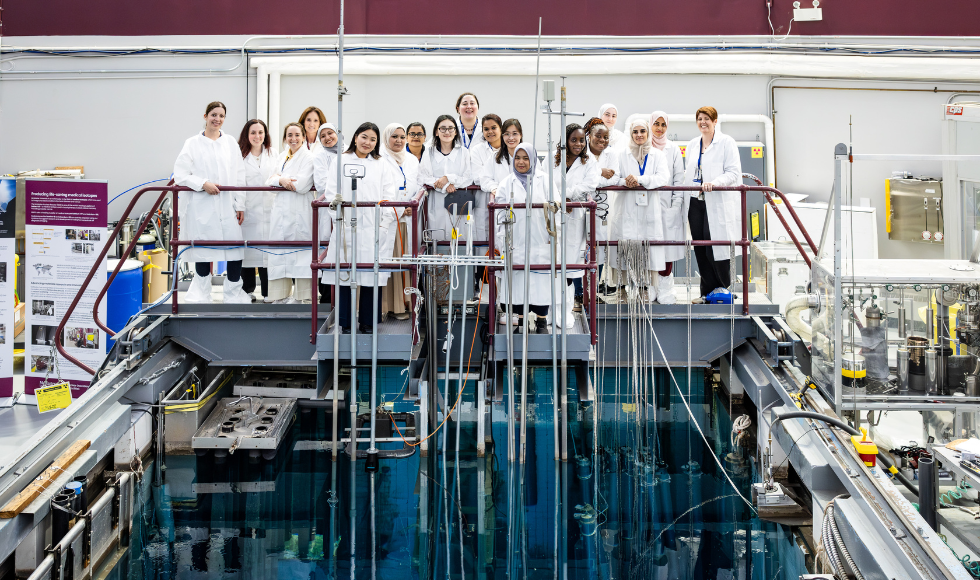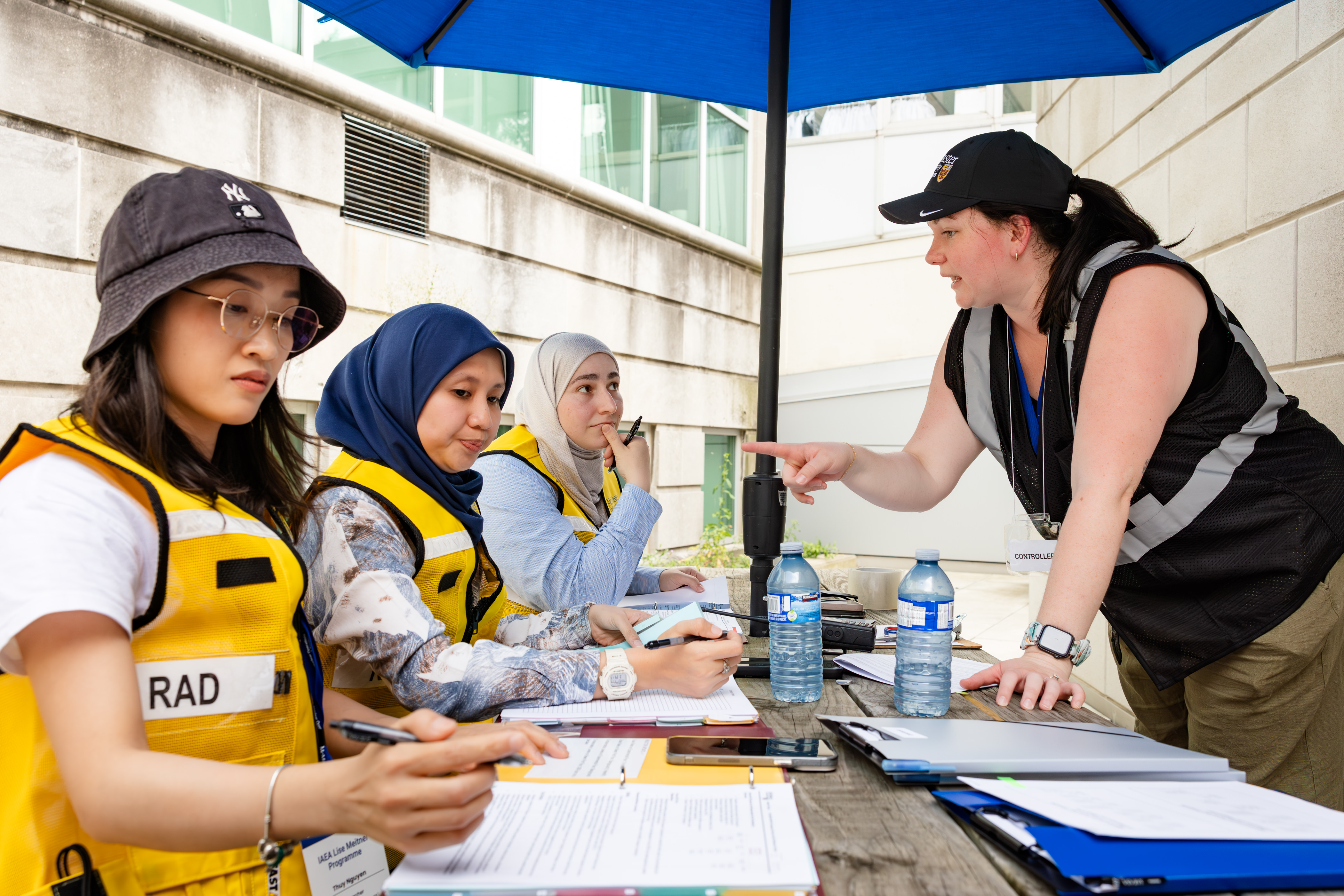McMaster helps develop the next generation of women in nuclear

The participants of the 2025 Lise Meitner Programme were given a tour of the McMaster Nuclear Reactor by Karin Stephenson, Director of Nuclear Research and Education Support, during their week of experiential learning at the university. (Photo by Ron Scheffler)
BY Lisa Polewski
August 13, 2025
Fifteen women from around the world received hands-on experience at McMaster’s world class nuclear research facilities as part of the Lise Meitner Programme (LMP), a prestigious program for women in nuclear offered by the International Atomic Energy Agency (IAEA).
The 2025 LMP cohort visiting Canada spent a week at McMaster in July, participating in interactive training experiences in areas including radiation safety and emergency preparedness, neutron activation analysis and hot cell manipulation.
McMaster health physicist Julianna Liberatore was on deck during the program as one of the university’s experts, along with Karin Stephenson, Director of Nuclear Research and Education Support, and engineering physics professors Dave Novog and Markus Piro.
Liberatore, a McMaster grad who now helps oversee the radiation safety program for the university’s nuclear facilities, said it’s inspiring to see a group of women from different parts of the world come together with a shared passion for nuclear – a field that is traditionally dominated by men.

“We’re moving in the right direction,” says Liberatore, noting that while women are still underrepresented, there are far more in the industry than when she started. “The LMP is vital for building the diverse teams that will drive the nuclear sector forward.”
McMaster is home to Canada’s largest nuclear research reactor and has one of the largest radiation safety programs at a university, which Liberatore said makes it an ideal host for the LMP.
Nuclear capacity globally is expected to more than double by 2050 according to projections from the IAEA, and as the existing workforce retires the agency estimates that 4 million new professionals will be needed to meet the demand for nuclear power.
That is why the goal of the LMP is to empower talented women to become not just technical experts, but also ambassadors, mentors and trailblazers to help shape the future of the nuclear sector, said Gloria Kwong, Head of the Decommissioning and Environmental Remediation Section at the IAEA.
She told participants that those whose countries are just embarking on their nuclear journeys have an even more important role as the architects of their countries’ nuclear foundations.
Hilda Mpakany is one of those women. As the acting Director of Research and Development for Kenya’s national Nuclear Power and Energy Agency she said McMaster and Canada serve as the “benchmark” for nuclear excellence.
“This opportunity to come to McMaster University is a great one and a unique one because we aim to get to where McMaster is, in terms of research and utilization of the research reactor.”
She praised McMaster’s experts who shared their knowledge and experience, saying the training she received will help propel Kenya’s own nuclear success.
“This is the right place to show our policy makers the wonderful work that McMaster is doing and how it is helping not only students who learn here, but your country as a whole.” The program also provided insight for participants to learn soft skills that will benefit their careers in nuclear, as well as opportunities to connect with women in leadership positions at McMaster and in the energy industry.
Stella Ntiwaah, an assistant research scientist with the Ghana Atomic Energy Commission, said she’s been inspired after meeting with women in senior and executive leadership positions during the program.
“In fact, I’m going to aim higher,” Ntiwaah said. “Because of this experience, I’ve decided I am aiming to advance my career.”
McMaster’s Provost and Vice-President (Academic), Maureen MacDonald, says it’s that kind of professional and personal development in which McMaster takes great pride.
“Developing talent is central to our mission, and as a global leader in nuclear, we have a responsibility to share our knowledge and expertise in ways that strengthen the sector and empower those who will shape its future,” says MacDonald. “Austrian-Swedish physicist Lise Meitner was instrumental in the discovery of nuclear fission but did not receive recognition for her contributions at the time, and the program is named after her to highlight the challenges that still exist for women in nuclear research a century later.”
This year’s LMP cohort built on the experience and skills they gained at McMaster during the second week of the program held at the Canadian Nuclear Laboratories facilities northwest of Ottawa in Chalk River.


